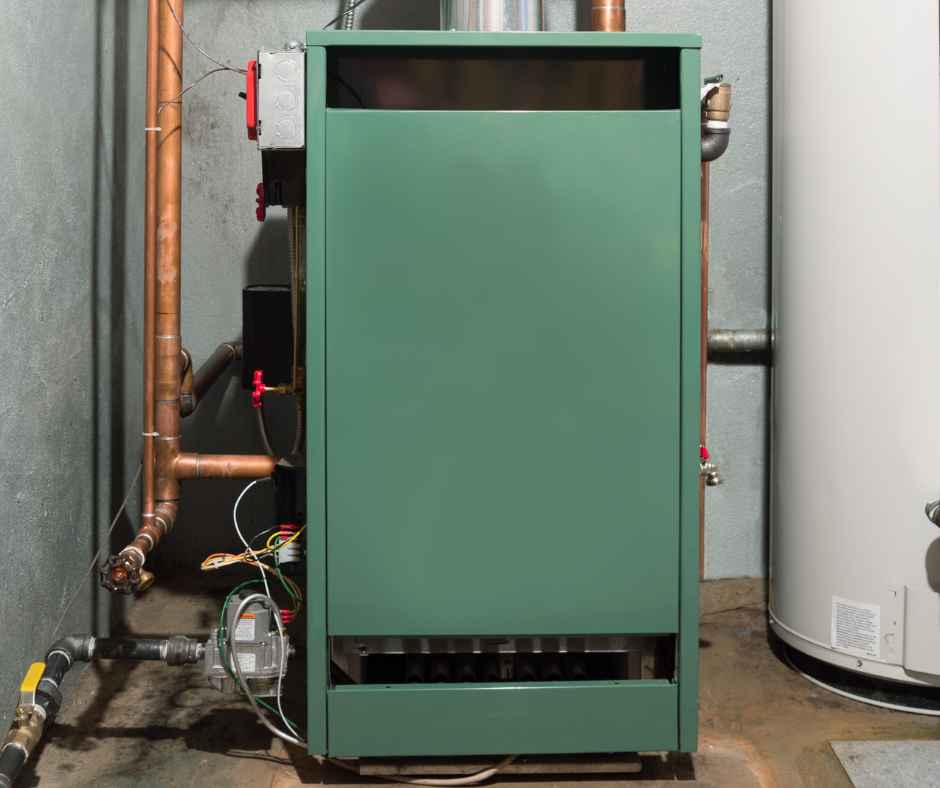Closed: Sun for God + Family time
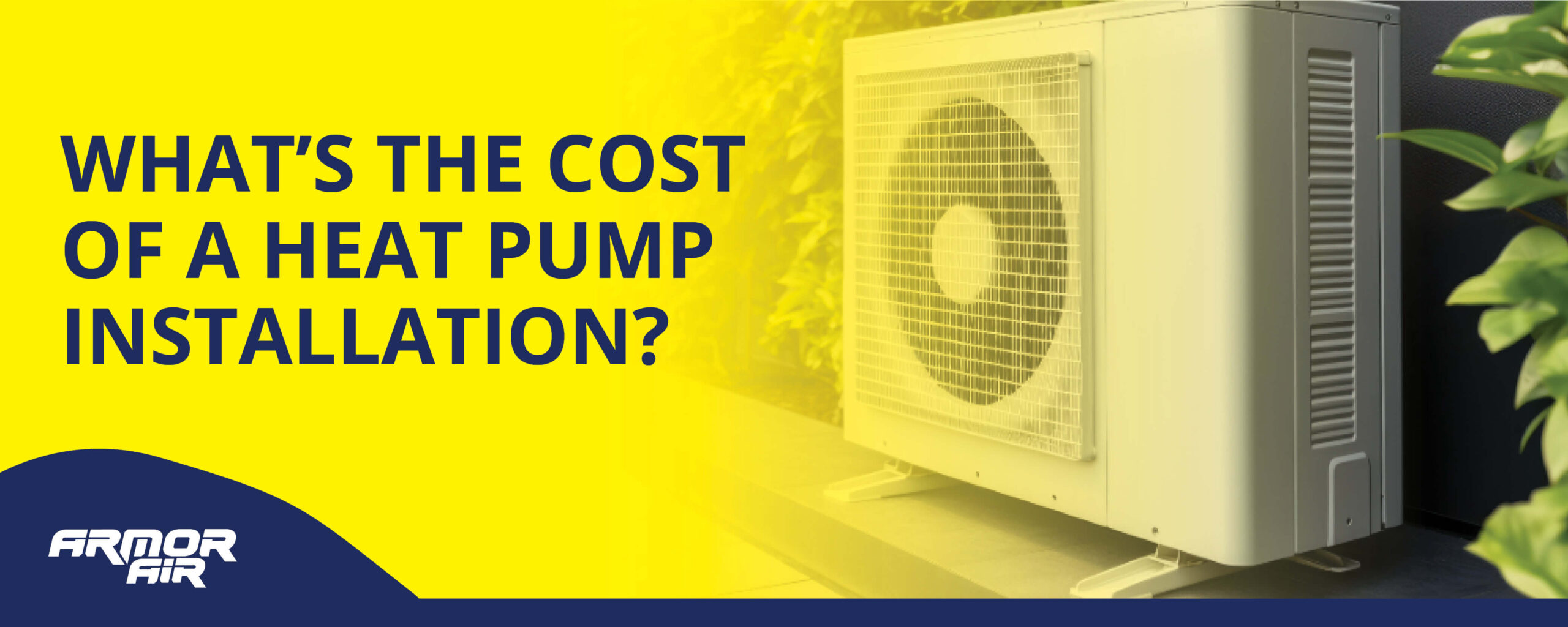
2024 Guide: How Much Does A Heat Pump Installation Cost
Cost of a Heat Pump Installation
A new heat pump installation can cost in the range of $4,500 – $10,500 in Indianapolis. We’ll break it down into simple terms so you can understand what goes into the price. We’ll explain what makes the cost range from $4,500 to $10,400, considering things like the size of your house and how efficient the furnace is.
When it comes to installing a heat pump, several factors come into play that can influence the overall cost of the project. Whether you’re upgrading your existing system or installing a new one, it’s crucial to be aware of the key elements that contribute to the final price tag. Let’s delve into these cost factors to help you make an informed decision for your heating and cooling needs.
Get a free estimate from our heat pump installation contractors near you today
Heat Pump Installation Cost by Type
Heat pumps efficiently distribute heat in your home by harnessing natural sources. While they are highly efficient,
it’s important to note that they may be less effective in colder climates.
Let’s explore some of the most popular options:
Water-Source Heat Pumps
Water-source heat pumps use a water loop, such as a lake or well, as the heat exchange medium.
They are energy-efficient but may have higher installation costs, especially if drilling or extensive water piping is required
Air-Source Heat Pumps
These are the most common type of heat pumps. They extract heat from the outdoor air and transfer it inside
for heating, and vice versa for cooling. Air-source heat pumps are versatile and suitable for various climates.
Geothermal Heat Pumps
Ground-source heat pumps use the relatively stable temperature of the ground or a water source (such as a well or pond) to exchange heat. They are highly efficient but often more expensive to install due to the need for underground loops.
Ductless Mini-Split Heat Pumps
These systems do not require ductwork for air distribution. They consist of an outdoor compressor/condenser unit and one or more indoor air-handling units. Ductless mini-split heat pumps are
| HEAT PUMP TYPE | COST RANGE |
|---|---|
| Water Source | $3,500 to $10,000 |
| Air Source | $2,500 to $7,500 |
| Geothermal | $8,000 to $25,000 |
| Ductless Mini | $1,500 to $5,000 |
Heat Pump Installation Cost by Size
Heat pumps vary in size and capacity, measured in tons and BTUs. Larger homes typically require more powerful heat pumps to effectively and adequately heat the space, and as expected, these larger units tend to be more expensive.
The right unit size for your house based on:
- The arrangement and total area of your home
- Height of the ceilings
- Quantity and positioning of windows
- Weather conditions in your locality
- Air filtration, insulation quality, and heat-producing appliances in your residence
- The number of people residing in your home and your preferred temperature range
| SQ FT of HOME | BTUs NEEDED | FURNACE COST | HEAT PUMP SIZE |
|---|---|---|---|
| 800 sq ft-1,000 sq ft | 18,000-24,000 | $3,500-$5,500 | 1.5 ton – 2 ton |
| 1,300 sq ft-1,5000 sq ft | 30,000-36,000 | $6,000-$6,500 | 2.5 ton – 3 ton |
| 1,800 sq ft – 2,000 sq ft | 42,000-48,000 | $7,000-$8,500 | 3.5 ton – 4 ton |
| 2,500 sq ft | 60,000 | $10,000 | 5 ton |
Cost by Efficiency
The cost of efficiency for a heat pump refers to the balance between the initial investment and the long-term energy savings it provides. Generally, more energy-efficient heat pumps have a higher upfront cost but can result in lower ongoing energy expenses. The efficiency of a heat pump is often measured by its Seasonal Energy Efficiency Ratio (SEER) and Heating Seasonal Performance Factor (HSPF).
the efficiency of heat pumps plays a crucial role in determining the overall cost. Typically, the more efficient the heat pump unit, the higher the upfront cost. Units with higher SEER/HSPF ratings may come with a greater initial investment, but their efficient electricity usage results in lower operational costs. When choosing the right heat pump efficiency for your needs, it’s essential to factor in both the upfront cost and the long-term savings in operational expenses. You should also consider the costs of electricity in your Indianapolis area.
SEER (Seasonal Energy Efficiency Ratio)
- Standard Efficiency: SEER 13-14
- Mid-Range Efficiency: SEER 15-16
- High Efficiency: SEER 17 and above
HSPF (Heating Seasonal Performance Factor)
- Standard Efficiency: HSPF 7-8
- Mid-Range Efficiency: HSPF 9-10
- High Efficiency: HSPF 11 and above
Additional Factors in Heat Pump Install Cost
Examining these additional factors alongside the previously mentioned ones provides a comprehensive understanding of the various elements that affect the cost of a heat pump installation. To make the best decision, it is advisable to consult with HVAC professionals, obtain detailed estimates, and consider both short-term and long-term considerations. This holistic approach ensures a well-informed decision-making process for your heat pump installation. Here are some key factors:
Labor Cost
The cost of labor is a significant factor in the overall installation cost. Professional installation ensures that the system is set up correctly, maximizing its efficiency and lifespan. Labor costs can vary depending on the complexity of the installation and the region, so obtaining multiple quotes from reputable HVAC contractors is advisable.
Location
The accessibility of the installation site and the geographical location of your home can affect costs. If the installation area is challenging to reach or if your location requires additional considerations (such as extreme weather conditions), these factors may contribute to increased labor and material costs.
Air Handler Condition
If you’re replacing an existing heat pump, the condition of the air handler should be assessed. An older air handler may need modifications or replacements to ensure compatibility with the new heat pump. Factor in any necessary upgrades or adjustments to the air handler when estimating installation costs.
When to Install a New Heat Pump
If your heat pump completely stops working, it’s a clear indication that you should consider getting a new one. Look for these warning signs:
- Your heat pump is over 10-15 years old.
- Fixing your heat pump a lot.
- Energy bills are going up.
- Purchase of new home.
How to Cut the Cost on a Heat Pump Installation
Here are some tips to save money on a new furnace installation:
-
Explore Financing Options: Check with HVAC companies for financing options or payment plans. This can help spread the cost over time and make the installation more manageable.
- Consider Ductless Systems: Ductless mini-split heat pumps are often more straightforward to install than systems with ductwork. If your home doesn’t have existing ducts, going ductless can save on installation time and costs.
- Optimize Existing Ductwork: If you have ductwork in place, ensure it is in good condition and properly sealed. Leaky or inefficient ducts can reduce the effectiveness of your heat pump. Consider having your ducts inspected and sealed.
- Select an Appropriate Size: Choosing the right-sized heat pump for your home is crucial. An oversized unit can be more expensive and less efficient. Consult with professionals to determine the appropriate size for your specific needs.
- Always remember about tax credits: Tax credits serve as a valuable financial incentive, helping to alleviate the upfront costs associated with major investments such as heat pump installations.
And here’s how to save money on heat pump maintenance:
Getting annual maintenance for your heat pump is not just important; it can also be a smart financial decision. With the Shield Protection Plan from Armor Air, you can make sure your heat pump gets regular maintenance without spending too much. Our plan is reasonably priced, helping you cut down on routine maintenance expenses.
Here’s why our Shield Protection Plan is a smart investment:
- Consistent Maintenance: Regular, yearly maintenance is the key to keeping your furnace in top condition. Our plan ensures that your system receives the attention it needs every year.
- Cost Savings: Skipping a year or two of maintenance might seem like a way to save money, but it can lead to longer and more expensive service visits. With our plan, you enjoy cost-effective maintenance that prevents potential issues from escalating.
- Energy Efficiency: Unmaintained furnaces often result in reduced efficiency, leading to higher energy bills. Our Shield Protection Plan helps maintain optimal efficiency, keeping your energy costs in check.
- Preventing Mechanical Problems: Regular maintenance decreases the risk of mechanical problems. With our plan, you can mitigate the chances of unexpected breakdowns and costly repairs.
- Extended Furnace Lifespan: Furnace lifespan can be significantly shortened without proper maintenance. By choosing our Shield Protection Plan, you invest in the longevity of your furnace, potentially delaying the need for a new one.
Don’t compromise on the well-being of your furnace. Choose the Armor Air Shield Protection Plan for consistent, cost-effective, and reliable maintenance that keeps your home comfortably warm and your budget intact.
Heat Pump Installation from Armor Air
Armor Air takes pride in providing homeowners across the Indianapolis area with top-notch installation services for new Daikin heat pumps. Whether you’re in historic neighborhoods like Fountain Square or newer developments in Fishers, we have options that align with both your comfort requirements and budget. Daikin offers an excellent range of heat pump equipment, ensuring options that align with both your comfort requirements and budget. Reach out to us today and schedule an appointment and we’ll assist you in finding the perfect new heat pump system. Plus, our skilled team will handle the installation work, ensuring your system runs optimally for years to come.
FAQ’s About Heat Pump Installation
Q: How does a heat pump differ from a furnace?
A: The primary distinction between a furnace and a heat pump lies in their heat generation methods. Furnaces use fuel combustion, such as oil or gas, while heat pumps harness natural heat sources like soil, air, or sunlight. Despite the need for electricity to function, heat pumps exhibit higher efficiency compared to furnaces.
Nevertheless, heat pumps may face limitations in specific climates where extremely cold temperatures impede their operation. Additionally, the installation expense for a heat pump surpasses that of a furnace.
Q: How does a heat pump function?
A: Heat pumps operate by extracting heat from external sources, such as the air, soil, or sun, and transferring that warmth into your home during winter. Conversely, in the summer, they can utilize the same sources to provide cool air.
This process is powered by electricity, and similar to an air conditioning system, heat pumps employ refrigerant for the heat transfer.
Q: What size heat pump do I need for a 1,500-square-foot home?
A: A 1,500-square-foot house needs a 3 ton heat pump, which will cost between $6,000 and $6,500 to install.
Share This Story, Choose Your Platform!
Recent News
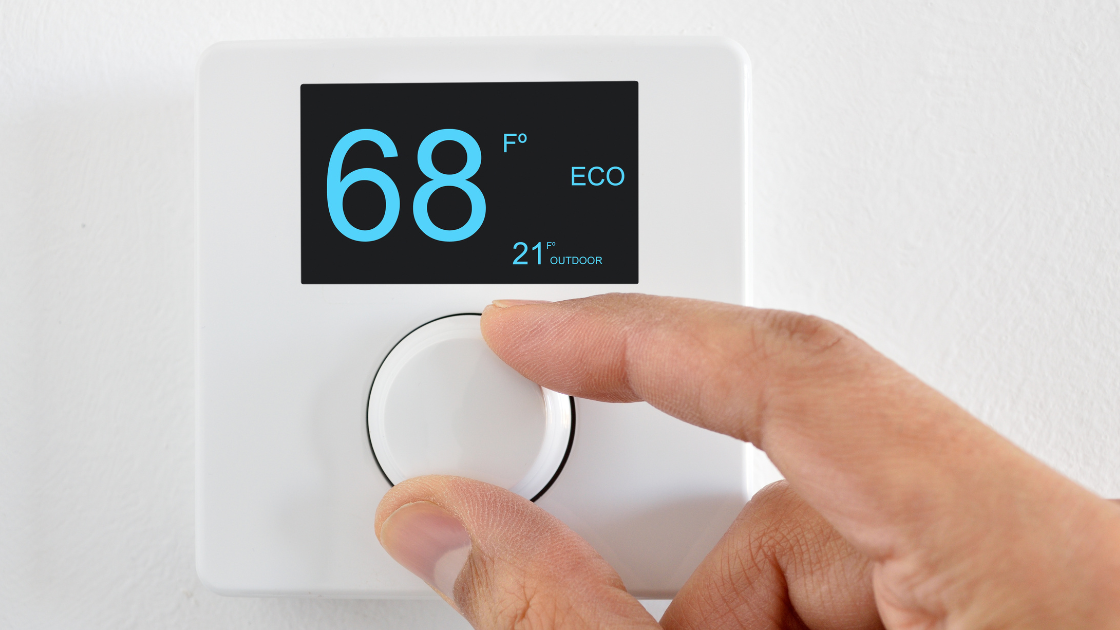
Help! My Heater Won’t Turn Off
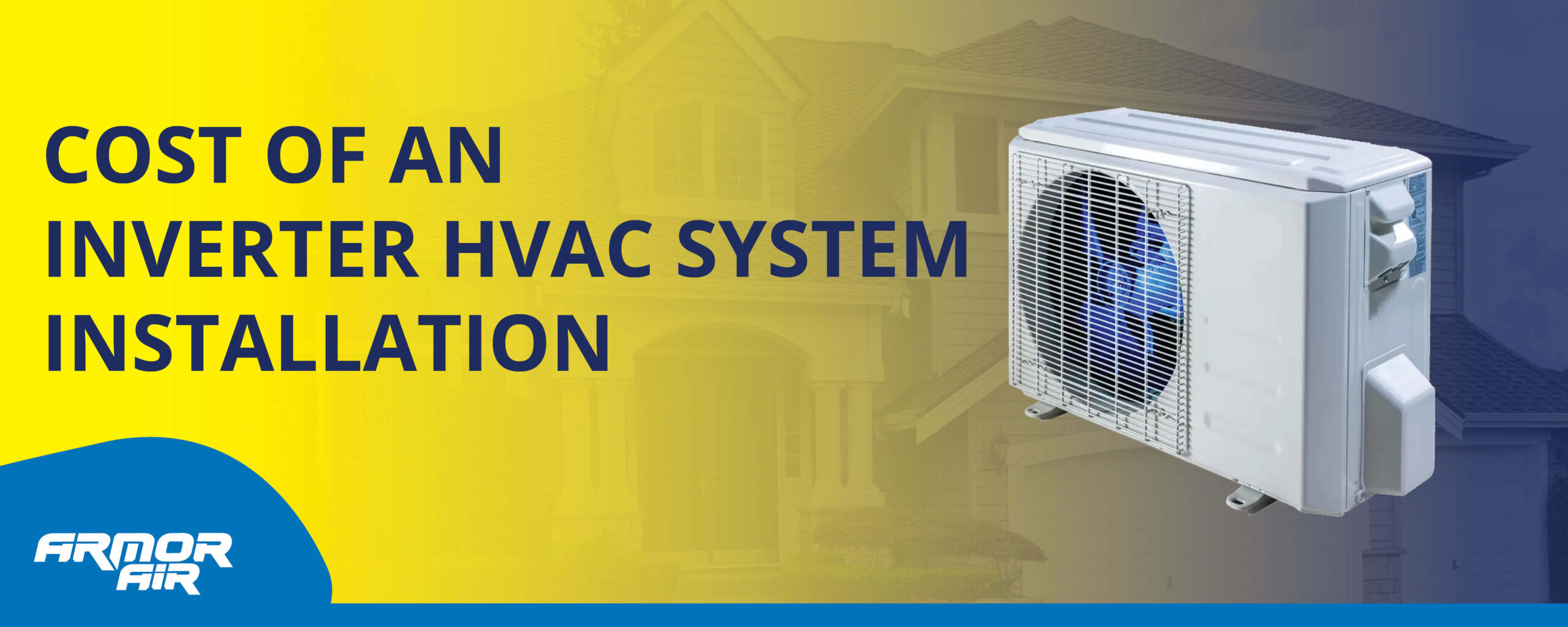
How Much Does an Inverter HVAC System Installation Cost (2025)
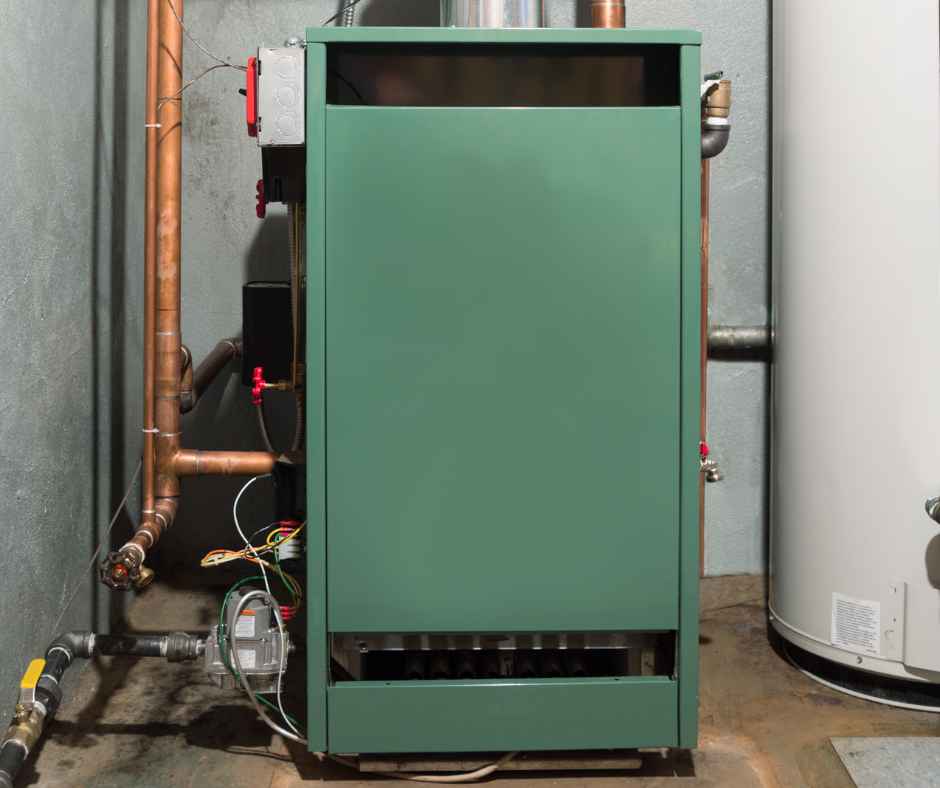
Why Does My Furnace Smell Like It’s Burning?
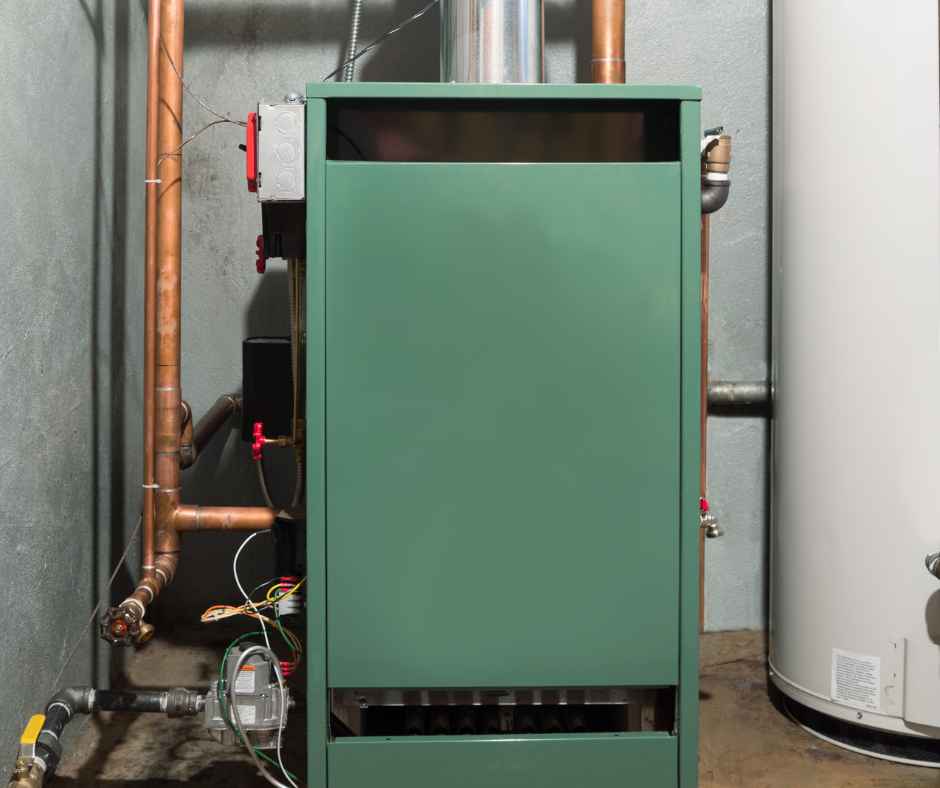
Why Won’t My Heat Turn On?
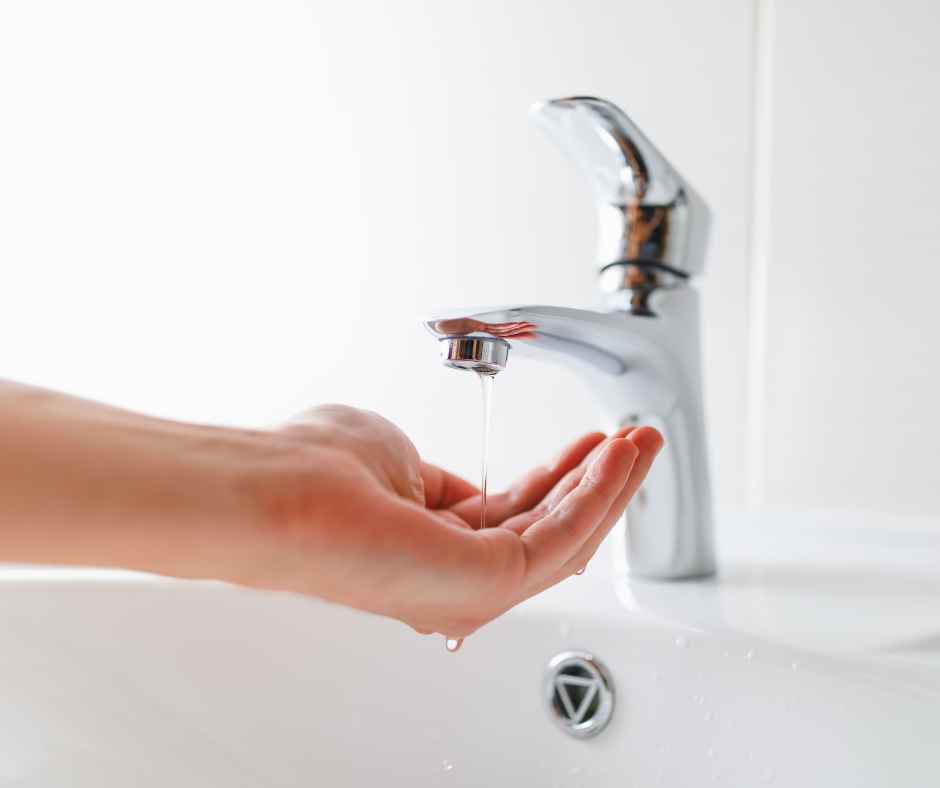
Why is the Water Pressure Low in My House?

Why a Tankless Water Heater Might Be the Best Investment for Your Indianapolis Home?
